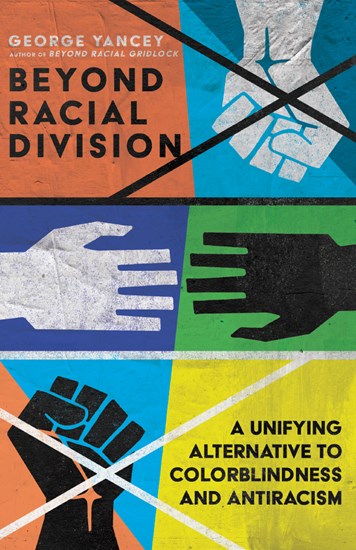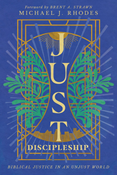
-
ebook
Christianity Today Book Award—Politics and Pubilc Life
Efforts at colorblindness and antiracism have not been very effective in addressing racial tensions in the United States. Colorblindness ignores the realities of race and the history of injustice. On the other hand, antiracism centers racial concerns and in so doing often alienates people who need to be involved in the process.
Sociologist George Yancey offers an alternative approach to racial relations where all parties contribute and are mutually accountable to one another for societal well-being. He provides empirical rationale for how collaborative conversations in a mutual accountability model can reduce racial division. History and societal complexity mean that different participants may have different kinds of responsibility, but all are involved in seeking the common good for all to thrive. Avoiding unilateral decisions that close off dialogue, Yancey casts a vision for moving beyond racial alienation toward a lifestyle and movement of collaborative conversation and mutuality.
"Dr. George Yancey argues that the two paths of colorblindness and antiracism have not worked and will not work to solve the country's problems and heal its pain resulting from a racialized society. Dr. Yancey contends that the path of colorblindness ignores racialized problems, and the path of antiracism causes a racially hostile society to be even more hostile and polarized instead of bringing ethnically diverse people together. Dr. Yancey argues for a third path that he calls 'mutual accountability/responsibility' or 'collaborative conversations.' This approach invites ethnically diverse image-bearers to be proactive and take personal responsibility to enter into collaborative conversations with the intent of working together with all ethnically diverse image-bearers of goodwill to solve racialized problems. For those interested in getting off the paths of colorblindness and antiracism, Dr. Yancey's book offers a third path to help God's image bearers get closer to the promised land of both racial healing and a racially fair society."
"There is not a more theologically sound, empirically informed, well-reasoned, or rational voice addressing the complexities of race, class, and culture in America today than that of Dr. George Yancey. In Beyond Racial Division, he navigates nuance and effectively challenges readers to get beyond rhetoric to results in their engagement of diverse others. As did Christ with arms outstretched, Yancey herein seeks to unite motivations and to hold Christ-followers in tension so that we might walk a more productive path for the sake of the gospel, and in so doing lead others away from painful polarization, beyond the crippling distinctions of this world that otherwise divide."
"Our racial division and inequality are extreme. In the midst of such challenges, we shout, we accuse, we point fingers, we divide into camps. And we get nowhere. Dr. Yancey proposes an alternative, rooted deeply in Christian understanding and sociological knowledge. He offers hope and clarity for our times. A must-read."
"Race relations in the United States are mired in acrimony, tribalism, and polarization. What is really needed as a key first step is the pursuit of better listening to one another. Yancey's Beyond Racial Division is a sensitive and sane proposal for how to go there while assessing current options with care and balance. It presents a distinctive third way. If you read one book on issues tied to race, this is it."
CONTENTS
Introduction
1. We Need a New Path
2. The Mutual Accountability Model
3. Reality of Institutional Discrimination
4. Why Antiracism Fails
5. The Empirical Basis of Mutual Accountability
6. The Theological Basis of Mutual Accountability
7. Doing Mutual Accountability in Our Lives
8. Toward a Larger Movement of Mutual Accountability
Acknowledgments
Notes
References













